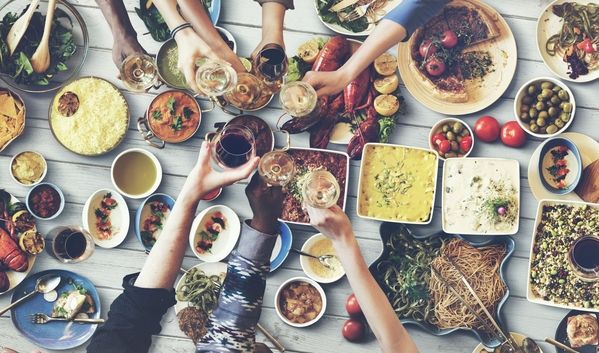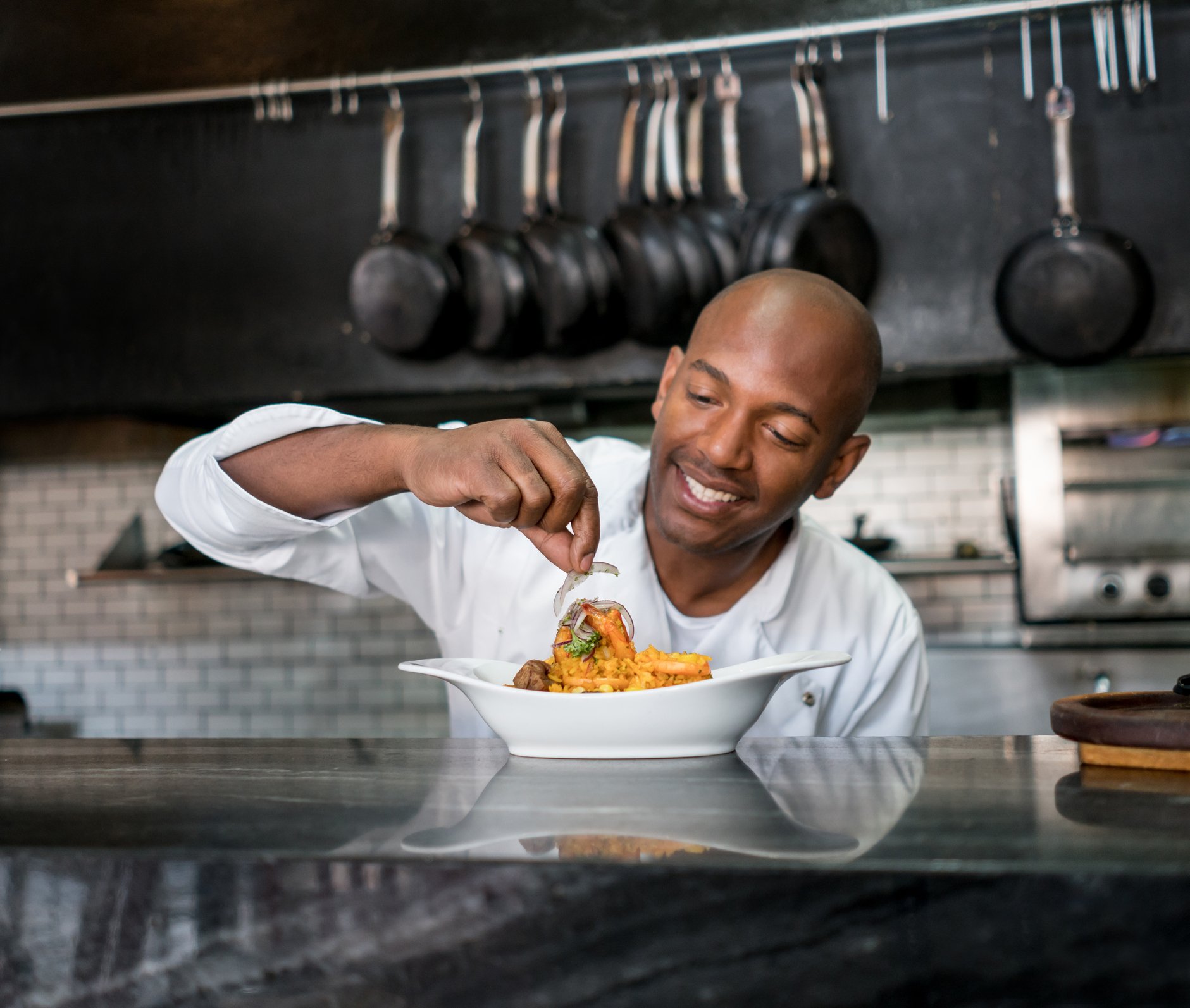As more restaurants update their business operations and report earnings, it is increasingly clear that had they not previously established takeout and delivery operations before the onslaught of the COVID-19 pandemic, many chains might not have survived.
What was a useful supplemental service to expand reach to more consumers before the coronavirus outbreak has since proved to be a veritable life raft that will allow casual dining chains to emerge from the crisis intact.

Image source: Getty Images.
No healthy appetite
The restaurant business wasn't doing well to begin with as increasing numbers of diners just weren't eating out anymore.
Industry analysts at Black Box Intelligence noted that restaurants suffered from falling levels of customer traffic in 2019, which fell 3.1% and was 1.2 percentage points worse than it experienced the year before.
Restaurants were able to still post same-store sales growth because average guest checks grew, suggesting price increases were doing the heavy lifting in the gains, along with customers ordering more food.
That, of course, came to a crashing end in March, when restaurants were among the first businesses ordered to close to help contain the spread of the virus. They were offered the lifeline, though, of staying open as long as it was only for takeout or delivery. What we're seeing is chains that had already established substantial off-premise operations seem to be doing best.
Take it to-go
Last month, Bloomin Brands (BLMN +0.46%), the parent of Outback Steakhouse and Carrabba's Italian Grill, reported that its off-premise weekly sales per restaurant tripled since the beginning of March, and it hadn't had to fire or furlough any of its hourly employees. Here are weekly sales per restaurant for the weeks ending on the respective dates.
|
Restaurant |
March 1 |
March 8 |
March 15 |
March 22 |
March 29 |
April 5 |
April 12 |
|---|---|---|---|---|---|---|---|
|
Outback |
$12,674 |
$12,628 |
$12,983 |
$21,781 |
$27,013 |
$28,211 |
$33,161 |
|
Carrabba's |
$11,877 |
$12,099 |
$12,291 |
$15,151 |
$18,821 |
$19,457 |
$25,377 |
|
Bonefish Grill |
$3,453 |
$3,579 |
$4,422 |
$6,348 |
$11,313 |
$12,463 |
$18,696 |
|
Fleming's |
NM |
NM |
NM |
$9,261 |
$12,664 |
$13,781 |
$28,077 |
Data source: Bloomin Brands. NM = not meaningful.
Similarly, Olive Garden and Longhorn Steakhouse parent Darden Restaurants (DRI +1.56%) said its takeout business, also presented here as weekly sales per restaurant, has also tripled.
|
Restaurant |
March 1 |
March 8 |
March 15 |
March 22 |
March 29 |
April 5 |
April 12 |
April 19 |
|---|---|---|---|---|---|---|---|---|
|
Olive Garden |
$16,191 |
$15,500 |
$14,942 |
$20,549 |
$34,524 |
$39,133 |
$44,000 |
$52,936 |
|
LongHorn Steakhouse |
$6,517 |
$6,406 |
$6,210 |
$11,379 |
$17,361 |
$19,858 |
$23,117 |
$28,653 |
Data source: Darden Restaurants.
Other restaurants also experienced similar surges, including Chipotle Mexican Grill (CMG +0.29%), which had relatively recently started operating Chipotlanes drive-thru windows at many of its restaurants but was able to convert its typical business to takeout and delivery.
Comp sales that had risen by double-digit rates in January and February collapsed in March, bottoming out at negative 35% during the last week of March, but beginning to rebound since. Even so, digital sales surged over 80% in the quarter, hitting its highest level ever, and accounted for 26% of total revenue. Prior to the pandemic, digital sales accounted for 19.6% of total sales.
Brinker International (EAT +1.44%) has also seen a big jump in off-premise business, stating the other day that such sales "have captured 57% of prior year Company total restaurant sales during the week ended April 22."
It says online orders at its Chili's chain represent approximately 70% of all off-premise orders from March 26 to April 22, and delivery now accounts for 20% of the company's total sales during those four weeks.
Nowhere to go
Chains that have negligible or no off-premise business face a tougher outlook. Ruth's Hospitality Group (RUTH +0.00%), the owner of the high-end Ruth's Chris Steakhouse, applied for and received $10 million in loans under the stimulus program passed, but it almost immediately agreed to pay it back after it and other large, publicly traded restaurant chains were chastised for taking money meant to keep small businesses afloat.
Dave & Buster's Entertainment (PLAY 0.06%) is also a chain predicated on in-restaurant experiences, and with all of its restaurants closed, it was forced to furlough all of its 15,000 hourly employees, 90% of its corporate staff, and initiate pay cuts. Last quarter, CEO Brian Jenkins told analysts, "Currently, our dining rooms are the least-visited space in our four walls."
It's clear the restaurant industry may be forever altered by the coronavirus pandemic, including how it operates, its relationship with its employees, and its interactions with customers.
Just as retailers are finding that along with physical stores, an online presence is vital to survival in a crisis such as this one, restaurants now also see that a robust off-premise business will be essential for their long-term health as well.










